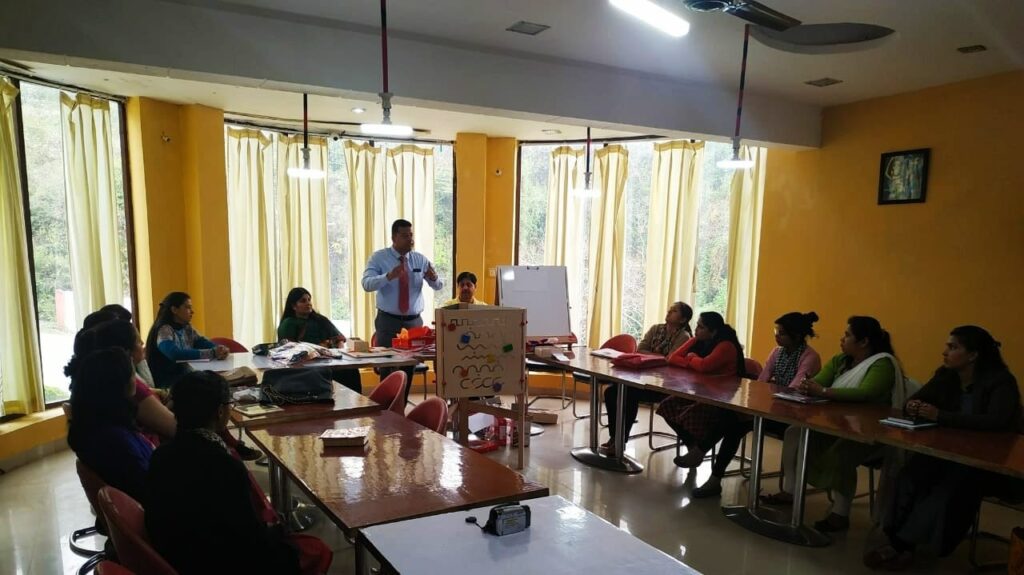
A ‘soft skill’ is a sociological term relating to a person’s “EQ” (Emotional Intellence Quotient). This includes qualities that characterize relationships with other people such as personality, social graces, communication, language, personal habits, friendliness and optimism. Soft Skills are the ability to interact and communicate positively and productively with other people. Soft skills are also defined as non-technical skills, and traits that people need to function in an employment environment. Soft skills complement hard skills – the technical requirements of a job and many other activities. A person’s ‘soft skills’ are an important part of his or her individual contribution to the success of a company or organization, and their own success as a leader. National studies consistently find that employers list skills in communication, interpersonal relationships, and problem-solving, as well as personal qualities such as self-esteem and motivation, as very important and highly desirable. Screening or training for complementary skills such as dependability, accountability, and leadership initiatives can yield significant return on investment for an organization.
⦁ Why Is The Need Increasing?
The business world today is smaller than ever before. Products and services are bought and sold across many borders. Interacting with people from many different cultures, internally and externally, is a much more frequent occurrence than just a few years ago. This fact is often overlooked, it is where many new challenges occur. A better understanding of how to successfully work in an ever changing, multi-cultural workplace, and effectively communicate with people is the key to overcoming these challenges. Companies and organizations that meet this challenge create a workplace where innovation and dynamic leadership thrives, and breakthrough results happen more frequently. As we all know, when business-people and technology-people can speak to and understand each other, bottomline results will improve.
⦁ Why One Should Invest in Learning Soft Skills
Every business is looking for ways to either save money or generate revenue. Human Resource professionals know that the cost of hiring is high, not to mention orientation and training. When you see a job announcement such as,
A leading financial firm seeks a take-charge, organized, detailed-oriented individual for Executive Assistant position in downtown Manhattan, New York City. A successful candidate must have at least 8 years’ of experience working with senior executives, strong Microsoft Office skills, strong communication and interpersonal skills, problem solving, and conflict resolution skills. Must be a flexible, highly motivated self-starter with ability to manage multiple tasks.”
It’s clearly evident that ‘soft skills’ are in demand, and essential for effective performance in the workplace.

Challenging times force people to be creative in order to get the most out of existing resources and talents. This often means that people are asked to take on additional responsibilities that may require customer facing skills, conflict resolution or even leadership roles. People who exhibit traits such as rapport-building, relationship management, leadership and influencing abilities will stand out as star performers in organizations facing such challenges. How can one develop such skills in a training environment? Knowledge is power. ‘Soft’ items are hard to quantify and often based on perception. Even though these skills may be known as ‘Soft,’ the impact is anything but: there is really a strong connection between inter-personal skills and high-performing leadership roles.
⦁ How Can You Tell Which Skills Are Needed?
Each person is born with certain personality traits. As we grow, observe and learn from our surroundings, we develop new habits. At the same time, our circumstances and day-to-day experiences have an enormous influence on the way we understand, adapt and learn. By the time a young person enters the workforce, they have accumulated many habits and personality traits. These may or may not serve them well in their chosen profession. For example, someone in the field of Sales and Marketing needs to have interpersonal skills, plus effective communication, problem solving, and relationship building skills. They also need to be able to work with a diverse range of customers, and demonstrate self-management strategies. In a very different profession, a Nursing candidate is required to have listening skills, critical thinking, problem sensitivity, and inductive reasoning skills, among others. So how can you tell which skills are needed, and, will training help? A self-analysis can prove to be a great tool for identifying which skills should be developed, based upon a chosen profession. Generally these skills can be defined in the following categories: Verbal Communications Skills – include the ability to speak and understand, communicate in ways appropriate to the situation and people involved. Interpersonal Qualities –such as self-development, self-esteem, accountability, responsibility and enthusiasm. Problem Solving – The individual who is best able to solve the problem effectively is the one who first recognized that the problem exists. Then, being able to focus on possible causes, find a possible solution, implement the solution, and prevent such problems from occurring again. Work Ethics and Teamwork – Cooperation and participation with others, listens to new ideas, participates in constructive discussions, negotiates constructively, and serves the customer.
Website = http://www.learningneeds.in



